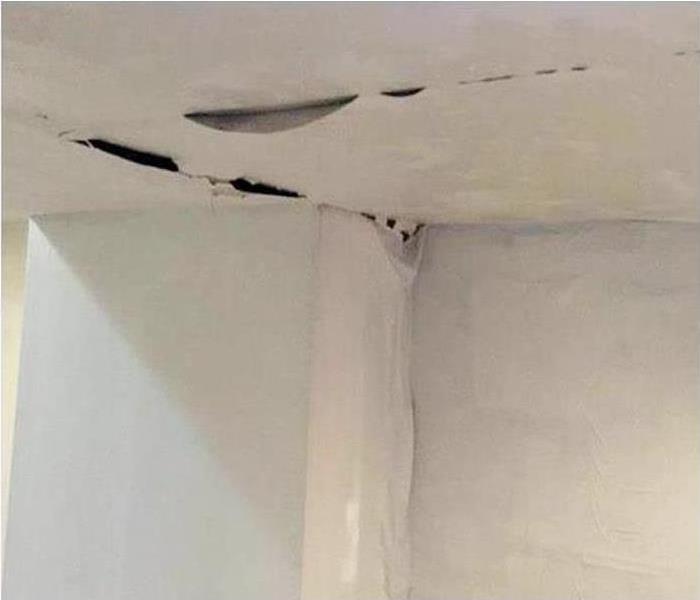4 Reasons You Should Not Wait for an Adjuster After Storm Damage
10/20/2020 (Permalink)
Four Reasons You Should Not Wait For An Adjuster
Recovering from a severe storm can be overwhelming, and you may find yourself wondering what to do if you find your home damaged by heavy winds, rain, and flooding in Thompson Station, TN. You should always check with your homeowner's policy to see if your property is covered by flood insurance, but you should also take action quickly to avoid any additional damage to your dwelling. One of the biggest mistakes people make is waiting for an adjuster to arrive before dealing with the destruction.
Here are four reasons you should not wait for an adjuster after suffering damage from a storm:
1. Intensified Damage
If you sit around and wait, the water and flood destruction could get much worse. You could end up with mold damage if damp and wet conditions are not addressed, and you may experience structural issues with your property if water seeps into drywall and wooden frames. Calling a professional storm cleanup and restoration services company can prevent the damage from getting worse.
2. Denied Insurance Claim
As a result of the intensified damage due to delay, your insurance claim could be denied once your flood insurance reviews your case.
3. Out of Pocket Expenses
If your claim is denied due to excessive damage from postponed action, you may have to pay for many of the repairs and restoration services on your own. These costs can add up quickly.
4. Long Wait Times
Adjusters will be busy after a storm, especially if multiple houses are experiencing flood damage from the storm. There may be several people ahead of you, and the deterioration will only continue to get worse as you wait and try to stick it out.
While it is always recommended to call and check with your flood insurance provider, it is not advisable to wait around for the adjuster to come before taking action. Between the waiting, the water damage, and the possible mold growth, you might end up with more damage and a higher bill than you expected.




 24/7 Emergency Service
24/7 Emergency Service
